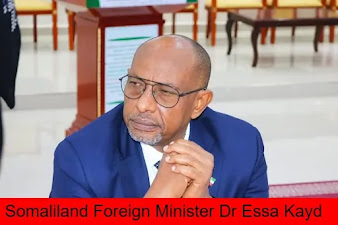Somaliland and Somalia: Now or Never?
In January this year, Somaliland and Somalia signed the Istanbul Communiqué committing themselves to mutual cooperation and peaceful resolution of their relationship, which has been on rocks ever since Somaliland proclaimed independence more than 22 years ago.
As much as the international community wants to be optimistic about the recent development in the horn of Africa, the completely opposite reaction of Somalia’s and Somaliland’s governments to the peace memorandum suggests the rift between the two has only got bigger during the last two decades. If Somalia wants Somaliland back, it is a now or never situation.
According to the Somalilanders, whom mass grave discoveries every now and then remind of Siad Barre’s regime atrocities, the use of ‘Government of Somaliland’ in the memorandum marks its official recognition by Somalia. The Somalis, keen to extend their relatively stable federal arrangement, think it is high time their prodigal son returned – after all, Somaliland has in more than 20 years of intensive effort yet to achieve any international recognition. It is not all about recognition however.
Since its secession, Somaliland has proved it can stand on its own feet. It has avoided security breakdowns and unstable leadership, and has made a remarkable progress in both economic and political spheres. Just like Botswana, famous ‘African tiger’, Somaliland incorporates elements of traditional clan based society into its governmental institutions. While the beel system helped to maintain traditional kinship relations during transformation, the guurti laid basis for the upper chamber in a bicameral democratic parliament. Inasmuch as lack of international recognition did Somaliland out of development aid, the country was forced to rely on domestic sources of income. A resulting unique collaboration between the government and local business environment, and mutual assistance thereof, has enabled the state to provide basic public services including education and health.
Yet, this is not to suggest that Somaliland is a thriving prosperous country, quite the contrary. A recent World Bank study[i] ranks Somaliland as the fourth poorest country in the world based on GDP per capita. Heavily dependent on its diaspora, Somaliland struggles to generate decent levels of domestic revenue, and is in dire need of reforms of its private and financial sectors.
Thanks to an eventful year, the economic future of Somaliland might not look all too gloomy after all. Sitting on the geologic framework of the Arabian Gulf, Somaliland has been in the spotlight of a number of energy companies that believe the country possesses lucrative oilfields. In fact, five companies, examples being Genel Energy or DNO International ASA, have already been granted oil exploration licenses. Genel operating in eastern parts of the country is expected to start drilling by the end of this year. Moreover, Somaliland is finalising a multi-million dollar deal to develop a port at Berbera which will operate as a trade hub between Africa and the Arab world, serving mainly landlocked Ethiopia. Both the port building French Bollore Africa Logistics and international oil companies are about to invest heavily in the country’s much needed infrastructure.
In light of the promising economic development in Somaliland, Somalia’s willingness to peacefully resolve issues with its northern counterpart is more an acknowledgement and indication of Somaliland’s potential than an honest conciliatory gesture. Somalia knows it is now or never – once Somaliland starts benefitting from oil revenues there will be no coming back. Somaliland’s oil fields are simply too attractive to lose.
Somaliland will face enormous pressure in the near future, especially since Abdiweli Mohamed Ali, newly elected president of neighbouring Puntland, is likely to push for federalization. Unlike Somaliland, Puntland has very little interest in independence. Ali, a prominent figure of an influential Majeerteen clan, will find it difficult to forget his time as the Prime Minister of Somalia, and will try to finish off his federalization agenda. Bringing Somaliland in also gives Puntland a chance to acquire the Sool and Sanaag, regions disputed between the two.
It is clear that Somali jets zigzagging across Somaliland’s sky will not leave anytime soon. Regardless of the Istanbul Communiqué, the dissension between Somalia and Somaliland is gaining momentum. As the international community, including the African Union, advocates one-or-the-other strategy, Somaliland is once again thrown back on itself – a position from which it has developed a remarkably inclusive system of governance which many parts of Somalia can only dream about. It deserves to be given a chance to prove its case. So if the question for Somalia is still ‘now or never’, the answer is a resounding never.
By Jonas Jelinek



Comments
Post a Comment